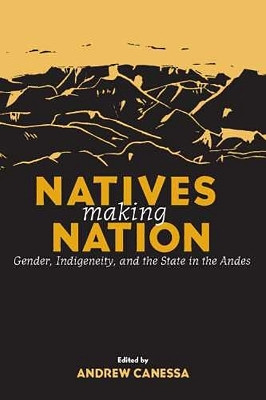Natives Making Nation(English, Paperback, unknown)
Quick Overview
Product Price Comparison
In Bolivia today, the ability to speak an indigenous language is highly valued among educated urbanites as a useful job skill, but a rural person who speaks a native language is branded with lower social status. Likewise, chewing coca in the countryside spells "inferior indian," but in La Paz jazz bars it's decidedly cool. In the Andes and elsewhere, the commodification of indianness has impacted urban lifestyles as people co-opt indigenous cultures for qualities that emphasize the uniqueness of their national culture. This volume looks at how metropolitan ideas of nation employed by politicians, the media and education are produced, reproduced, and contested by people of the rural Andes--people who have long been regarded as ethnically and racially distinct from more culturally European urban citizens. Yet these peripheral "natives" are shown to be actively engaged with the idea of the nation in their own communities, forcing us to re-think the ways in which indigeneity is defined by its marginality. The contributors examine the ways in which numerous identities--racial, generational, ethnic, regional, national, gender, and sexual--are both mutually informing and contradictory among subaltern Andean people who are more likely now to claim an allegiance to a nation than ever before. Although indians are less often confronted with crude assimilationist policies, they continue to face racism and discrimination as they struggle to assert an identity that is more than a mere refraction of the dominant culture. Yet despite the language of multiculturalism employed even in constitutional reform, any assertion of indian identity is likely to be resisted. By exploring topics as varied as nation-building in the 1930s or the chuqila dance, these authors expose a paradox in the relation between indians and the nation: that the nation can be claimed as a source of power and distinct identity while simultaneously making some types of national imaginings unattainable. Whether dancing together or simply talking to one another, the people described in these essays are shown creating identity through processes that are inherently social and interactive. To sing, to eat, to weave . . . In the performance of these simple acts, bodies move in particular spaces and contexts and do so within certain understandings of gender, race and nation. Through its presentation of this rich variety of ethnographic and historical contexts, "Natives Making Nation" provides a finely nuanced view of contemporary Andean life.


